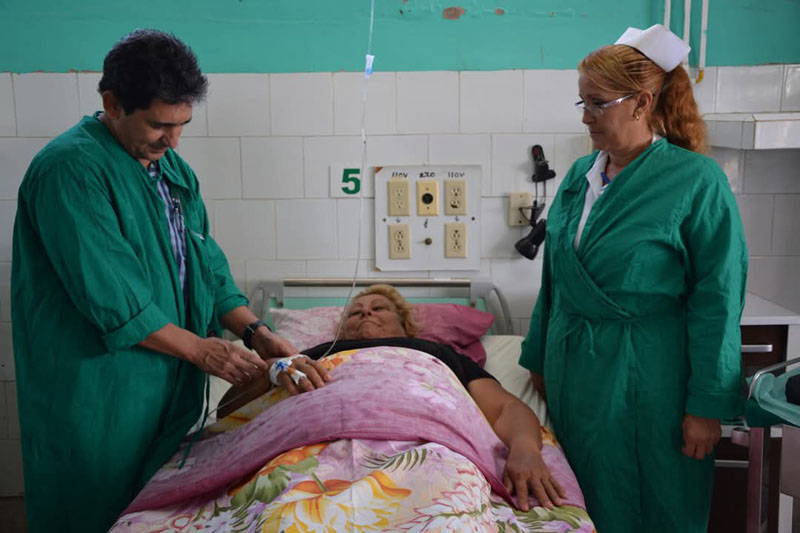Do things well, for the welfare of the people
- Written by Lourdes Pichs Rodríguez
- Published in Health
- Hits: 1349

A few days before closing 2024, there is the consensus that this has been one of the most dificult years of all those experienced in recent times.
If you ask a manager or worker in the health system, they will respond that in the case of health assistance "this will be remembered as the most tense due to the lack of essential resources, which often undermines patient care."
For Dr. Sara Liz Ricardo Suárez, specialist in Internal Medicine and deputy director of emergency and critical care at the Vladimir Ilich Lenin General University Hospital, these 12 months are among the most difficult in the almost six decades of that institution, in order to overcome any category of tension faced, nor comparable to the traumatic time of the COVID-19 pandemic.
“Since the beginning of 2024 we have lacked so many things that, sometimes, we ourselves within the institution wonder how we could finish the work day if we had started without the most basic supplies or instruments, such as syringes, something that is decisive to sustain a care center of this type.”
“But we are not only talking about expendable materials, we are also referring to other larger ones, such as cytostatics, antibiotics or essential equipment to sustain people's lives, including Radiotherapy.”
“We are going through a year during which we face difficulties in caring for patients requiring this treatment at the Territorial Oncology Center, attached to Lenin and with coverage for several provinces, because they are expensive devices and their repair costs a lot, even technicians come from other countries to repair this equipment and this has led us to certain limitations, including a waiting list for radiant treatment,” she described.
“In addition, we suffer the migration of people to other sectors in which they receive a much higher salary than that received in this sector. But, we are not only talking about doctors and nursing staff, but also about those in the service area, such as general assistants, messengers, orderlies and technicians. This has a very negative impact on our daily work routines.”
She insisted on the particularities of the hospital, “the province's Maternal and Child Care Program (Pami) is supported here, since it is in this institution where most births occur in the country. It is the largest "maternity" in Cuba and is also considered the largest in Latin America, because on average in one day almost one primary school classroom is born, 20, 25 children, but there are occasions when we exceed 30 births, although the phenomenon of the decrease in the birth rate in the country and the increase in population aging has its effects on the statistics."
"Likewise, we will end 2024 with more than 10,000 surgeries, as strategies introduced have allowed us to have greater control over the number of resources that enter the center and establish priorities," she commented.
“There are procedures marked by a protocol or a manual, for example if there are five syringes the staff must ensure that the patient who goes to the room is the one designated, the one who really needs it. There is the essence. Our triumph continues to be the ability of Cubans to overcome so many obstacles and above all to believe that we are capable of doing things better.”
Dr. Sara Liz feels optimistic, because she says that adversity makes them stronger. “In November when we celebrated the day for the 59th anniversary of "Lenin" and I noticed the indicators I felt an enormous pride. That is why when we arrive at this hospital every day, and not just me, we all do so with the same desire to do things well, to surpass what was done the day before and for the welfare the people.”
